
Going live in 10 seconds📱
Dear Reader, by now I am sure all of you know that I have shifted to a new house recently. Guilty of repetition, I promise, this is the last reference that I am making to this move. So of course my favourite pastime of late has been finding home decor ideas.
While browsing through instagram the other day I came across a post from one of my favourite home decor creators. She had set the dining table beautifully. I loved the whole setup, the colours, et al. As always after admiring and taking some inspiration from the post I was about to move down. But there was something different about this post. It said shop the look from Amazon. I clicked on it and voila, each item used in the decor was available right there for purchase. The creator had a page on Amazon where I can shop by each decor look. Whether or not I bought the items is a different story but hooked I am for sure.
There is live commerce, creator led commerce, tokenised commerce and more. Khushdeep Sethi beautifully decodes the social commerce realm in this week’s Favcy Review article that aptly names - Going Live in 10 seconds!
A lot of you must be having heartburn (and pocket burn) from the recent crypto related announcements that the government of India has made. Frankly, it was just a whole lot of speculation leading to a market crash. What will happen to crypto in circulation if the government bans it? We cover the full story in our Short Take this week.
I once heard Vijay Shekhar Sharma jokingly state at an event (in 2019) that he is just a horse with blinders being whipped by the investors to run in one direction and then the other. Of course he was at his humorous best and all of it wasn’t to be taken seriously, but his words reflected a harsh reality. Startup founders go through some very tough times (mentally) in the wake of various pressures from multiple stakeholders. This week in our Angel Bytes section The Psychological Price of Entrepreneurship, we talk about these challenges and more importantly ways in which we as investors can help them cope.
And last but not the least, we have an amazing announcement from our Founding Partner, Pranav Chaturvedi -
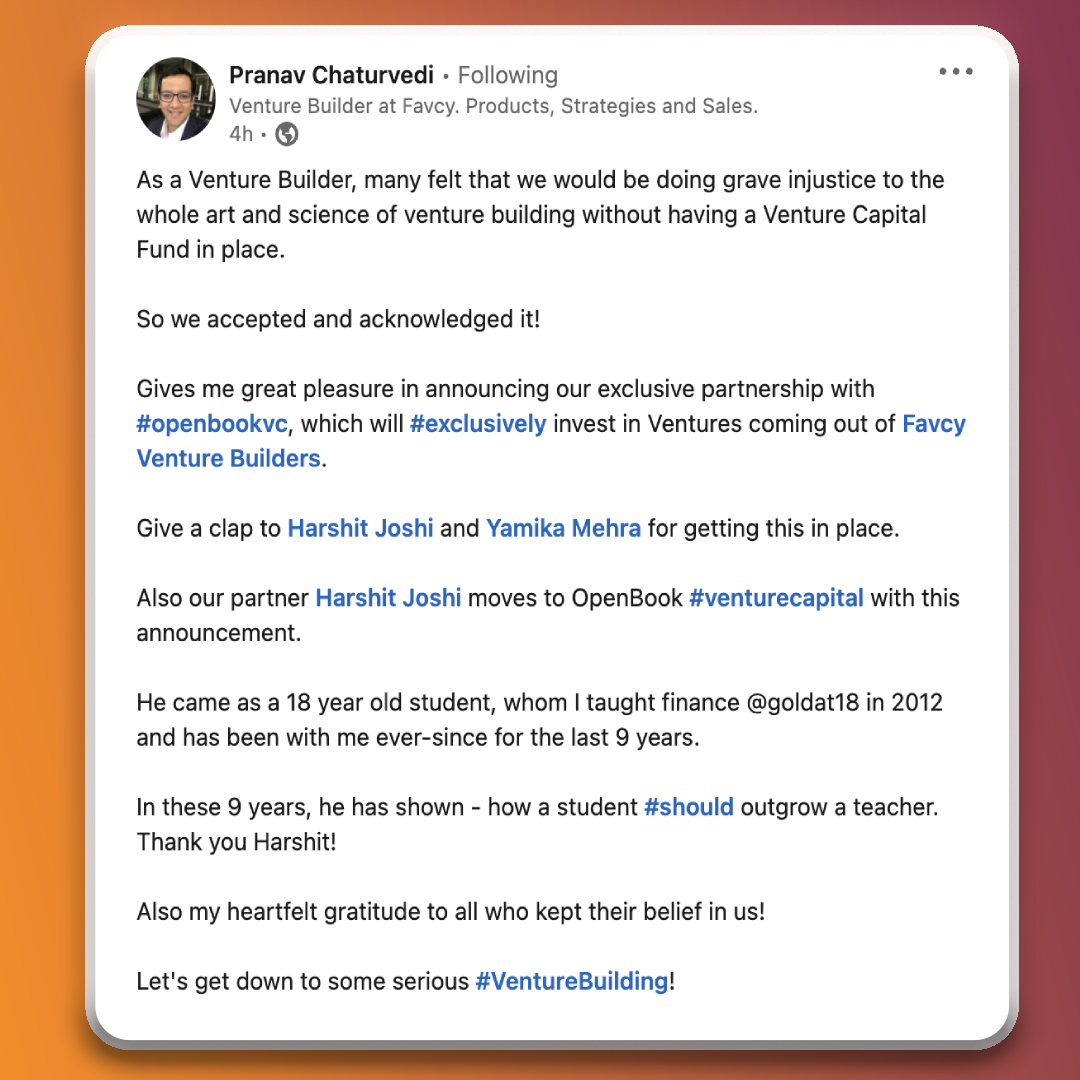
Do share your feedback on this effort. You can mail us at insider@1stcheque.com
Cheers 🍻
Yamika

Adhering to internal adrenaline, Most people went into panic selling after listening to the crypto ban news.
But how much is the truth? Will the government really ban cryptocurrency? What lies in the future of the crypto industry in India?
Let’s find out in this week’s short take!
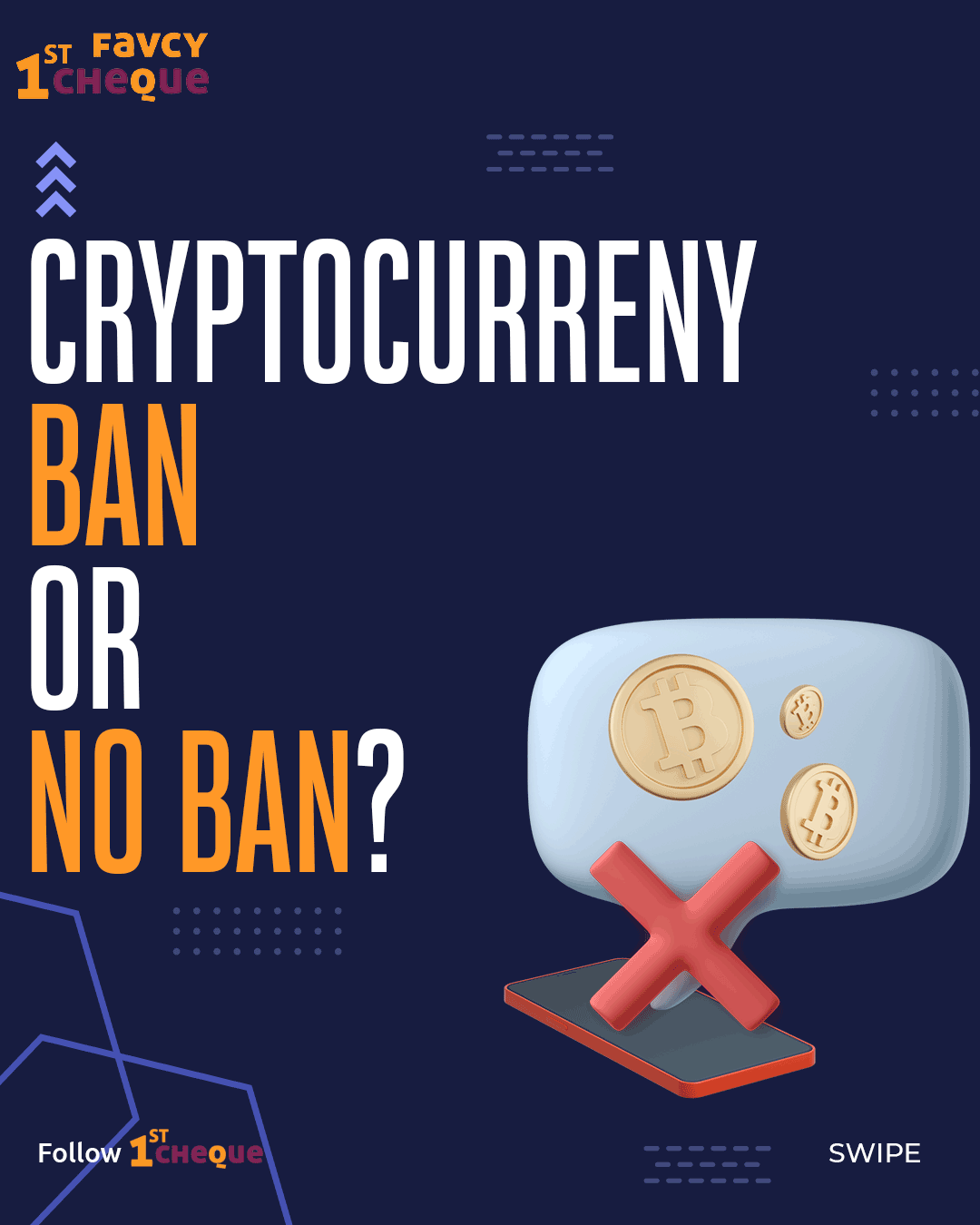





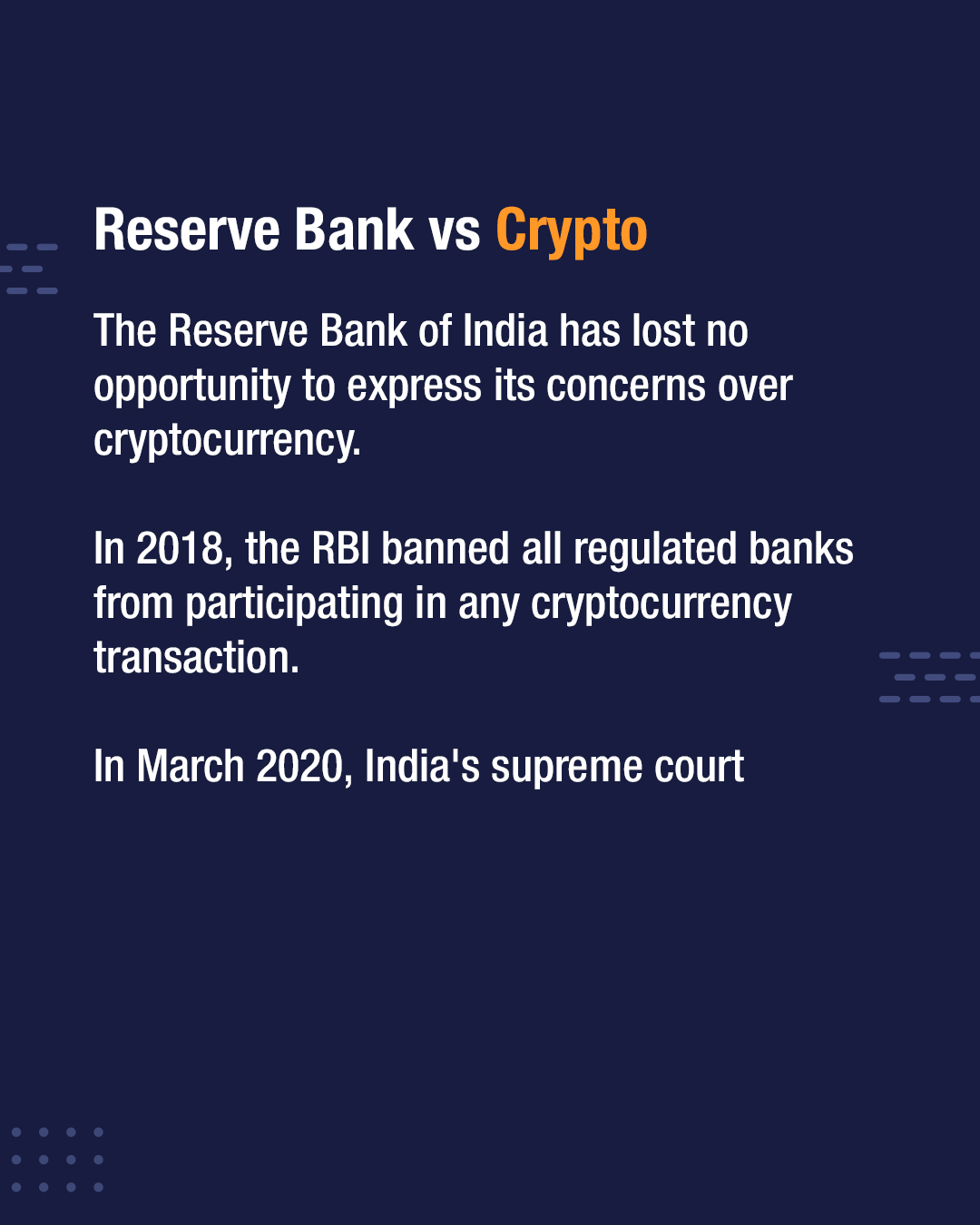

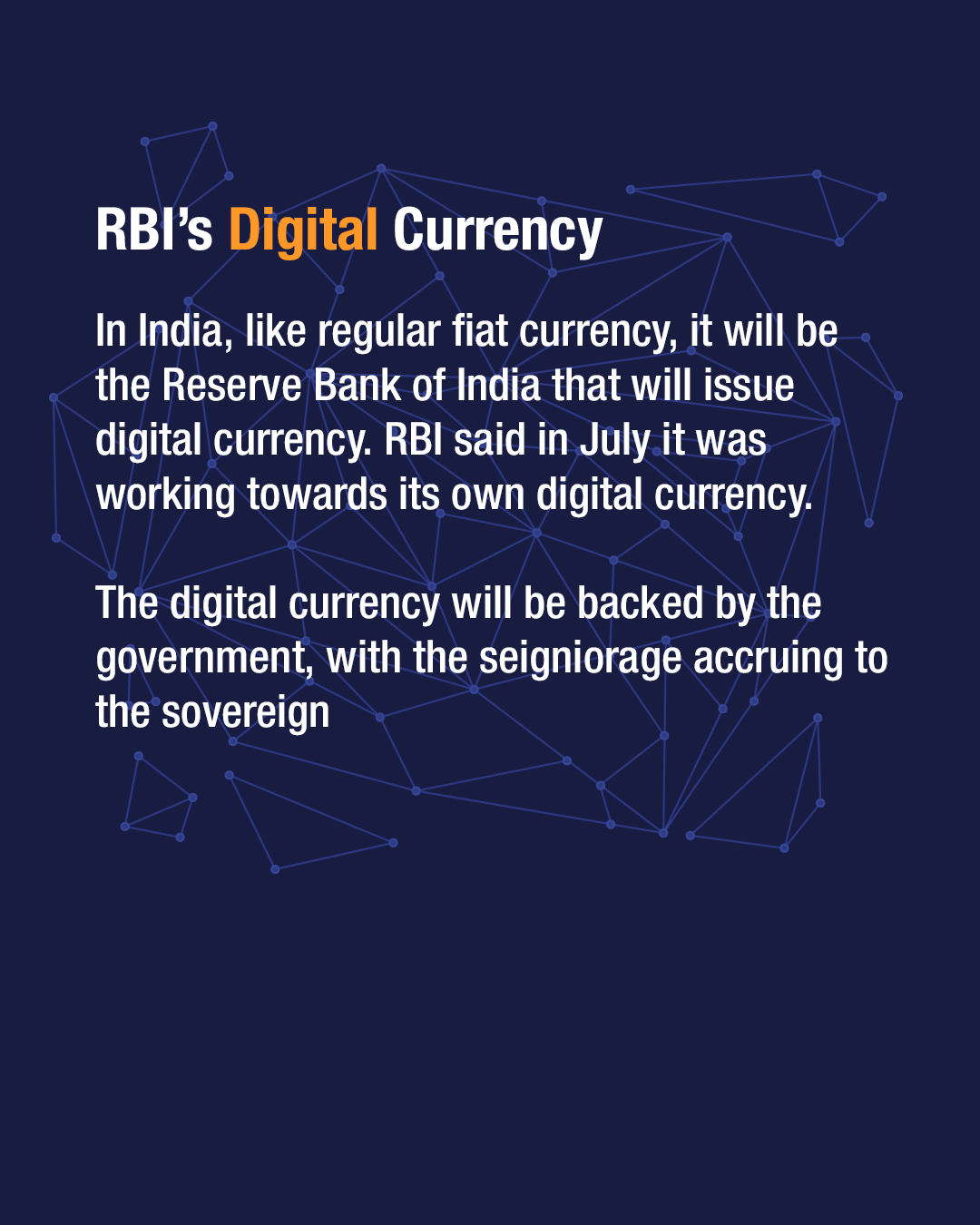
.png)
Going live in 10 seconds!
by Khushdeep Sethi, Content Strategist, Favcy 1stCheque
.png)
- Did you know Yahoo used the term social commerce for the first time back in 2005?
- Today, Social commerce has branched its way into the new age of technology as live commerce, influencer commerce, and whatnot. It is becoming the new normal!
- This week, Khushdeep Sethi unravels the world of social commerce and how it has spread its wings into today’s industry.
Read in detail to find out!
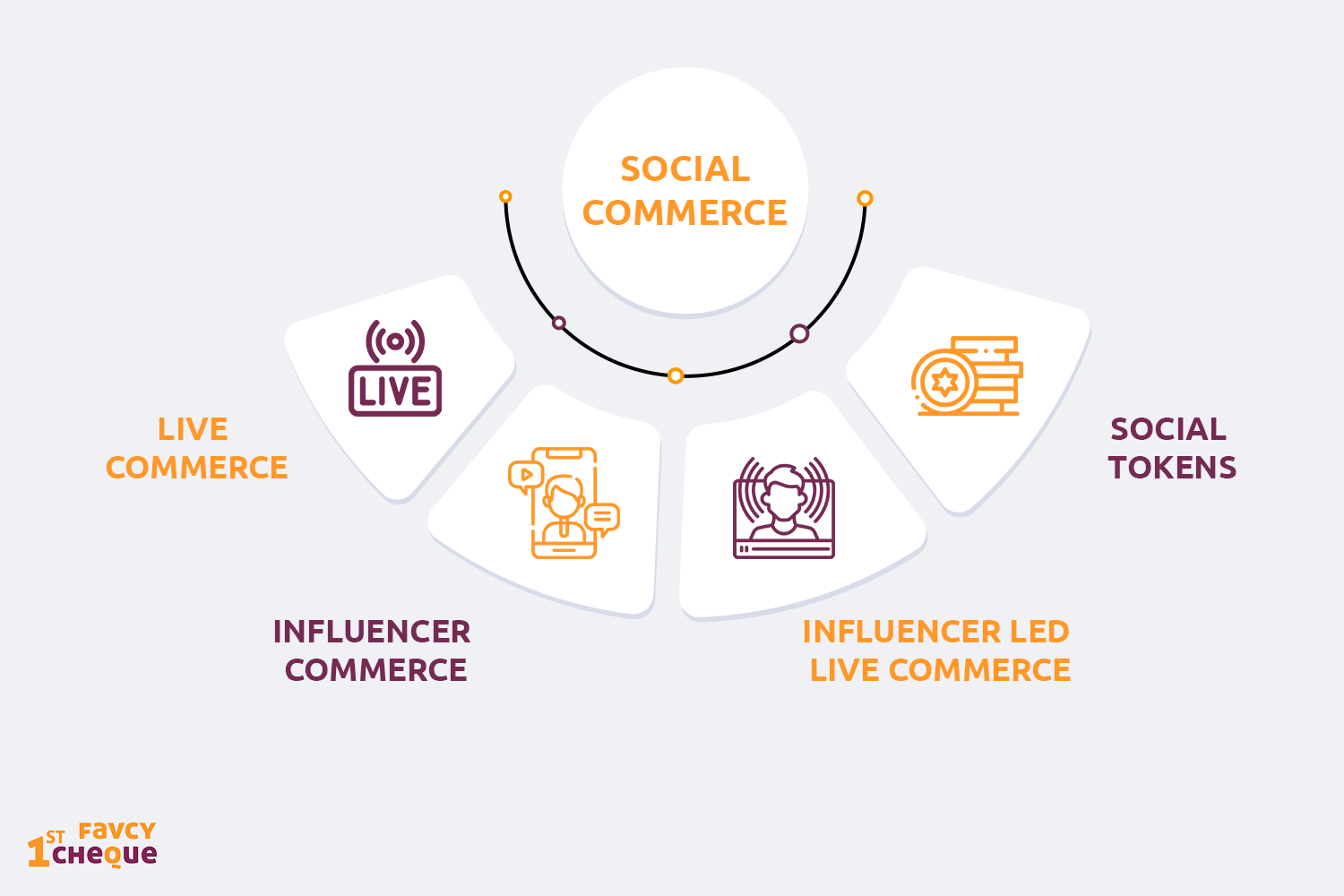

The Psychological Price Of Entrepreneurship
by Khushdeep Sethi, Content Strategist, Favcy 1stCheque

Are you tired of hearing about your next-door Sharma Ji ka ladka?
From a 10th grader to a unicorn startup founder, people from all walks of life have felt this ginormous pressure boiling inside them but don’t speak about it. This is what we’re going to address this week. Mental Health in entrepreneurs. Startup founders feel immense pressure on their shoulders. More profits, unicorn status, go public, and what not! This stress goes on which inevitably takes a toll on their mental health. But nobody wants to talk about depression and mental health, fearing backlash from investors and customers.
Mental illness is a huge and growing problem in India, and its severity is compounded by the fact that nobody wants to talk about it. Most of the entrepreneurs suffer some form of depression, but none of them wants to be named. Why is such shame associated with mental health?
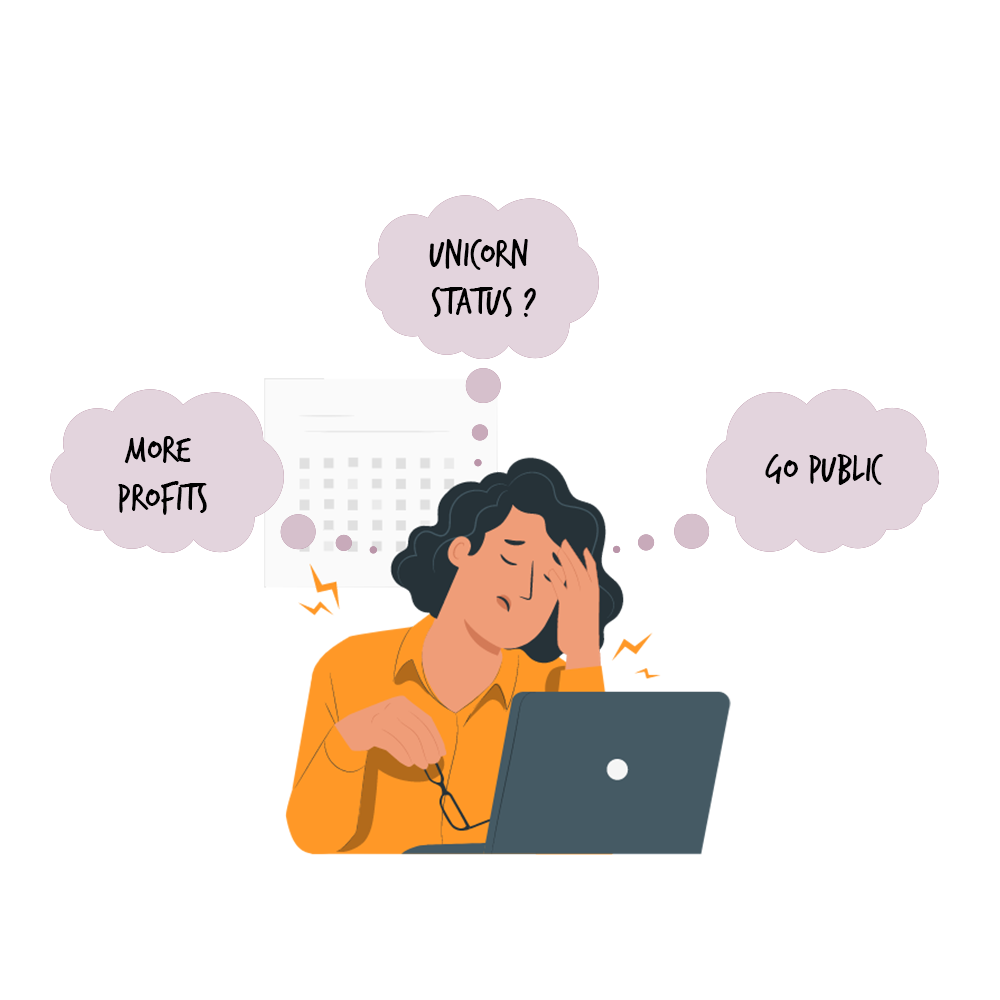
According to the World Health Organization, “depression is a leading cause of disabilities worldwide and is a major contributor to the overall global burden of diseases”
The WHO estimates that globally, 280 million adults suffer from depression. Depression is not just a matter of feeling sad or having mood fluctuations. When it is left undiagnosed and therefore untreated, it can become a serious health condition which, at worst, can lead to suicide.
Is the grind real?
When we’re talking about entrepreneurship nowadays, it’s all about the grind. Being a step further, working an hour longer, not settling for less, learning from mistakes but ultimately taking winning as the only result. Philosophy of grind lives in countless motivational videos on YouTube, numerous books written by the business visionaries (and the people faking to be ones), almost infinite number of famous people’s quotes. The grind is real but the perpetual grind has severe consequences.
In 2011 Elon Musk famously said that starting a company is like “eating glass and staring into the abyss.” While it can easily pump up startup enthusiasts to keep grinding even harder because everybody wants to build a new Tesla, the phrase actually paints a sad picture of being an entrepreneur. It’s painful, it’s hard and it’s unpredictable. A perfect recipe for deteriorating the mental health of those who are doing it.
We’ve numbers to prove!
A 2015 research, found that entrepreneurs are twice as likely to suffer from depression, three times more likely to suffer from substance abuse, 10 times more likely to suffer from bipolar disorder, and twice as likely to have suicidal thoughts than the average population.
.png)
Besides, the research also highlights the gravity of the problem. 49% of the surveyed entrepreneurs reported having at least one mental health condition, while 32% reported having two or more mental health conditions. Additionally, 18% of the respondents reported having three or more mental health conditions.
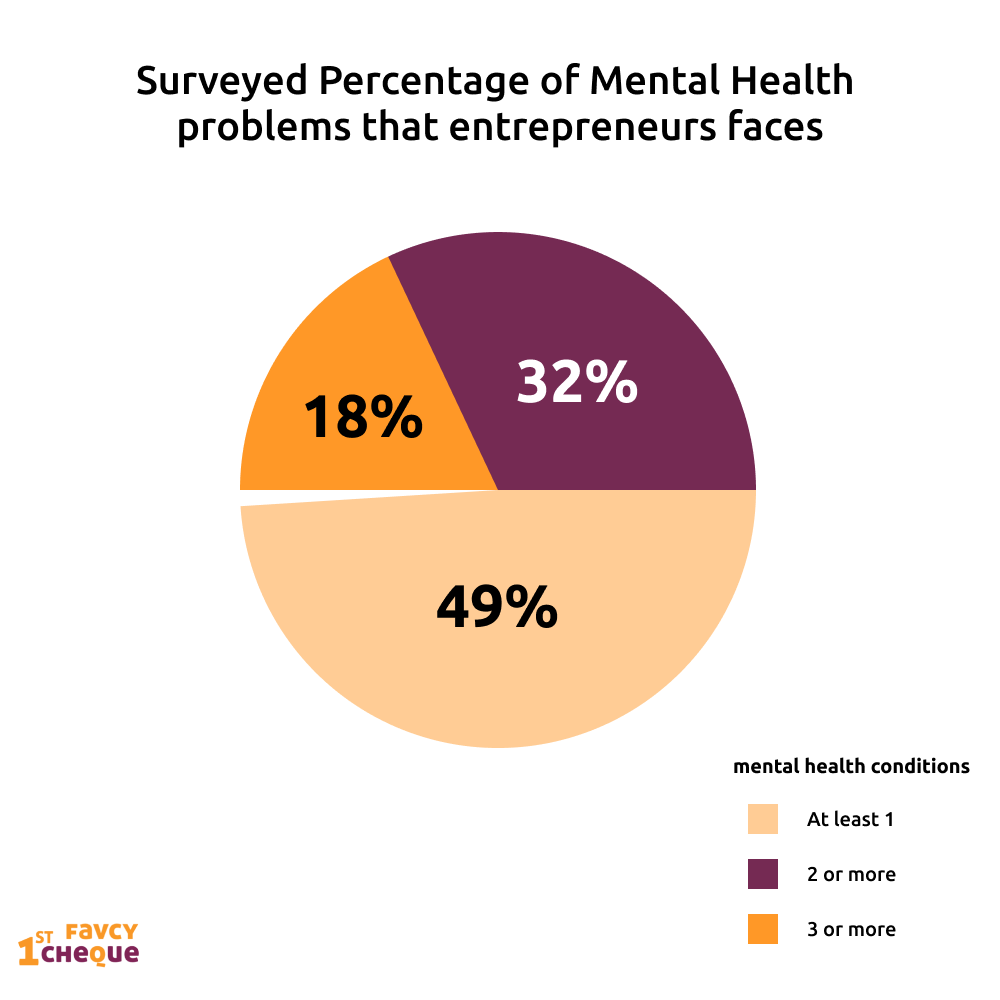
Why does it matter? Because while we talk about grind all the time we forget to admit that there is a much darker side to entrepreneurship. That, in turn, creates an imbalanced reality when talking about your success and the ways to reach it is fine but sharing your inner struggles is not.
Here we come to the most dangerous feature of the current startup reality — a stigma.
The Mental Health Stigma
You might have seen inspiring stories of founders who’ve battled depression and gone back with the grind. But have you seen on founder that said, ‘I have depression right now and I need help.’ This is exactly where the stigma lies.
Founders are expected to be resilient to all kinds of intense pressure. The pressure to be ‘Normal’ adds to the stack of the stress of raising money and staying in business. Over the years, Mental Health has failed to find its place in their regime. Why is mental health a block, a stigma, a red flag?
As a society, we’ve built the binaries of success and failure as polar opposites - Applauding the first and shunning the other. The mental health of entrepreneurs reflects the symptoms of a stigmatized society, in which failure is personal and success is merely measured with the wealth of the enterprise and not the aspirations or joy of the work.
What can you do?
Managing mental health is no easy feat. Entrepreneurs themselves can try to reduce stress, anxiety, and their vulnerability to mental health problems by leading more balanced lives, through meditation and mental wellness activities, and therapy. But destigmatizing these issues would require creating awareness and participation from all stakeholders, particularly investors.
We all want our eggs in the right basket but are we losing the point of it all? What is the one thing that inspires us all in the startup ecosystem? The passion for creating something to make millions of lives easier. but can we create anything when the creator themselves are falling off the wagon? One might think that even God might want a day or two off from all the crazy, doesn’t it?
As investors, you are already one step ahead of it. When you invest in a startup, you share the passion behind it with the founder. But there’s so much more than you can share. That’s right!. Investors need to normalize discussing mental health challenges. They need to start open dialogues and provide a safe and supportive environment so that entrepreneurs can discuss their mental health challenges without fear of repercussions. A torpid tornado of thoughts in one’s mind gets decluttered when it gets a direction to go out.
Moreover, investors can also ensure that the startup environment provides focus on mental wellness for all employees, including the founders, instead of chasing a toxic hustle culture.
At the end of the day, normalizing mental health discussions among founders requires a cultural shift – a fundamental change in the way people perceive and view mental health challenges, and how they react to confessions of mental illness.
.png)
Here are the events of this week:
- NoBroker becomes India’s first real estate startup unicorn
- Spinny raises $248M, turns unicorn
- Dream 11 parent Dream Sports raises $840 mn at the valuation of $8 bn
Stay tuned to receive the latest industry trends, investor insights, our exclusive angel bytes, and much more!

A platform for first-time angel investors to learn the science of early-stage startup evaluation. Get exclusive access to pre-vetted deal flow and make your first investment.
Subscribe to our newsletter 👇🏻 Don't worry, it'll take just few seconds :)
Reach out to us:
Liked the newsletter, Share it with others!👇🏻